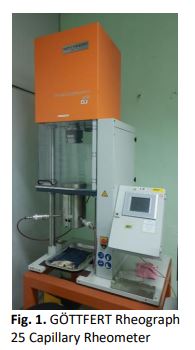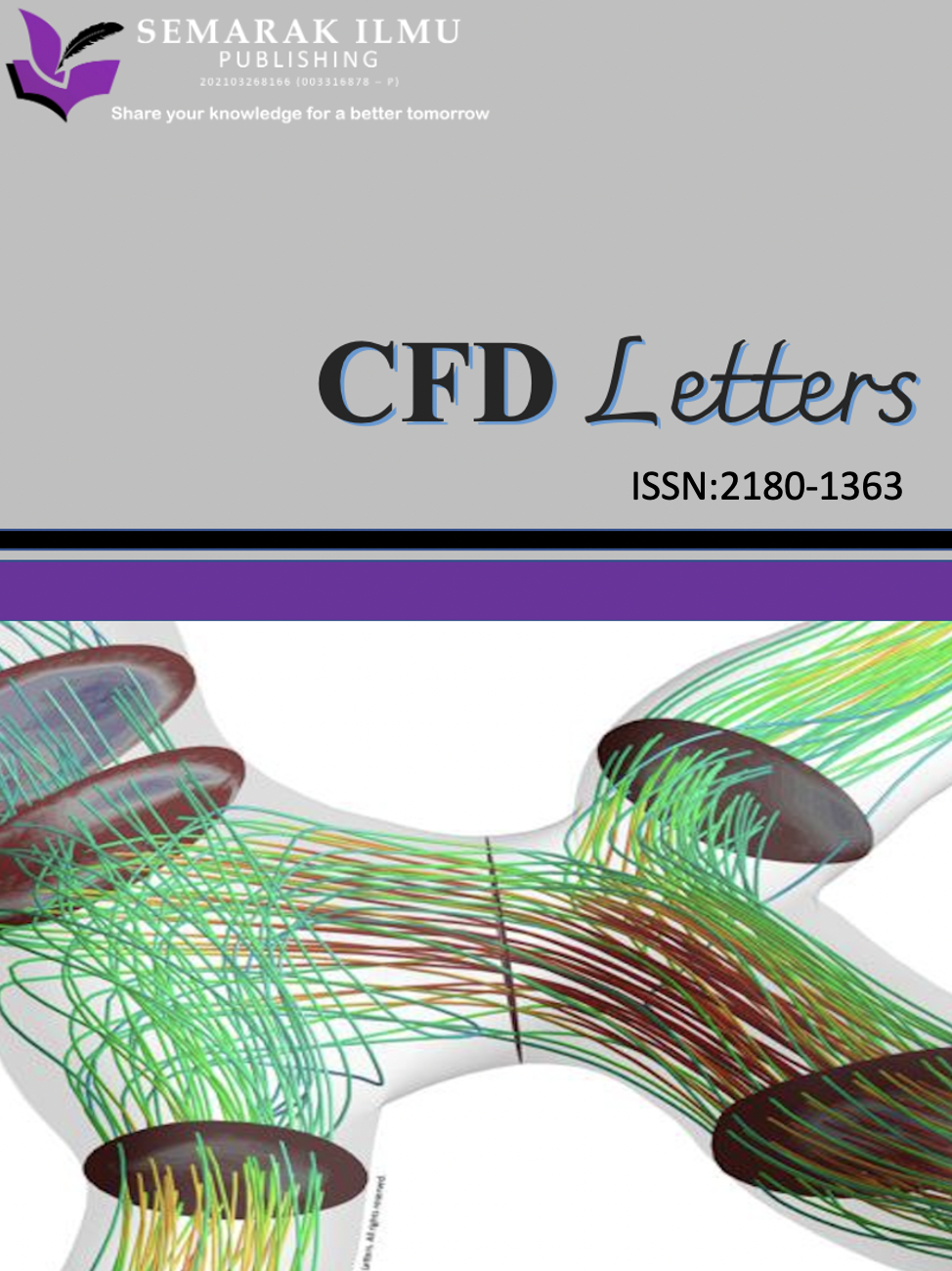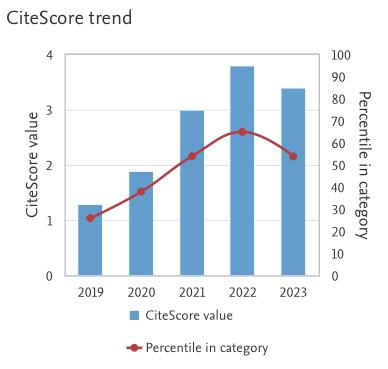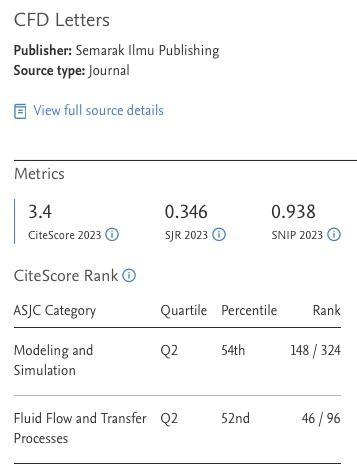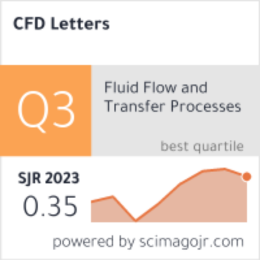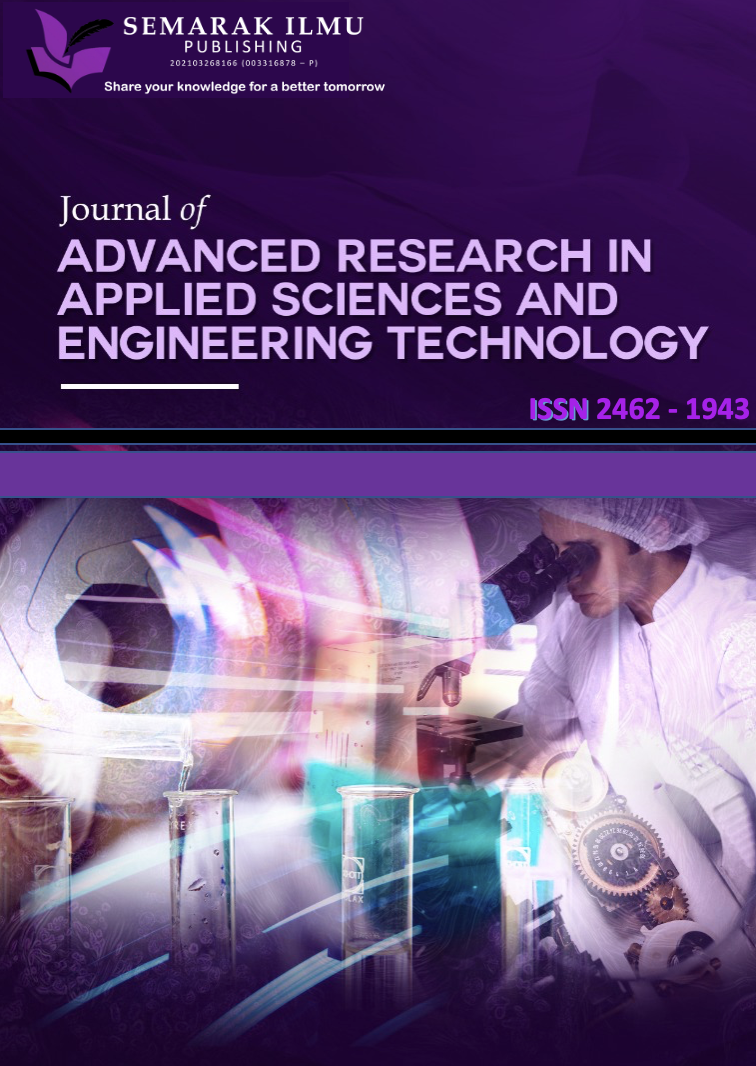The Comparison of Medical Grade PP with Common Grade PP in Injection Moulding Process
DOI:
https://doi.org/10.37934/cfdl.14.4.113Keywords:
Injection moulding, polypropylene, Medical grade PP, Common grade PPAbstract
Polypropylene (PP) is used to make a syringe and its tray, and there are two varieties of PP: medical grade (LB6331) and common grade (TP340). Although these two materials are basically similar, their characteristics differ significantly and have an impact on overall performance when made using the injection moulding process. The traditional trial-and-error method for optimising PP syringe and tray manufacture is often costly and time-consuming. This research is being done to create a numerical study using ANSYS Fluent on finding the best material to mass-produce the syringe and its tray to come up with a solution to lower the cost and time it takes to make the much-needed virus-fighting equipment. The objectives of this study are to compare the two types of PP's viscosity during injection moulding with ANSYS Fluent, to determine any incomplete fillings of both types of PP viscosity during injection moulding in the mould with ANSYS Fluent, and to compare the time taken between the two types of PP to fill up the mould casing. In the simulation, the temperature for both materials are set as 190 °C, and the parameter inserted beforehand are followed using the cross-parameter table, which contains zero shear viscosity, power-law index, and time constant for the temperature. A constant gauge pressure of 38.22 MPa is inserted as the inlet boundary condition for the simulation, along with the temperature of 190 °C. The results revealed that the time taken for the molten LB6331 to be fully injected into the mould is 1.5 seconds while for molten TP340 is 4 seconds. The viscosity of LB6331 at 2500 s-1 is approximately 220 Pa.s while the viscosity of TP340 is approximately 350 Pa.s. Both PP are shear thinning because their viscosity decreases with increasing shear rate. The VOF for both simulation of LB6331 and TP340 showed that there are imperfections at the edge of the mould casing because that part still contains air.
Downloads
References
Maddah, Hisham A. "Polypropylene as a promising plastic: A review." American Journal of Polymer Science 6, no. 1 (2016): 1-11.
Ishak, Mohd Nasri, Abd Rahim Abu Talib, and Mohammad Yazdi Harmin. "Material selection and design analysis of multi-purpose disposable safety syringe." International Journal of Engineering & Technology 7, no. 4 (2018): 214-220. https://doi.org/10.14419/ijet.v7i4.13.21358
Ramesh, S., P. Nirmala, G. Ramkumar, Satyajeet Sahoo, G. Anitha, A. K. Gnanasekar, and J. Isaac JoshuaRamesh Lalvani. "Simulation process of injection molding and optimization for automobile instrument parameter in embedded system." Advances in Materials Science and Engineering 2021 (2021). https://doi.org/10.1155/2021/9720297
Wang, Chongda, Vahid Shaayegan, Franco Costa, Sejin Han, and Chul B. Park. "The critical requirement for high-pressure foam injection molding with supercritical fluid." Polymer 238 (2022): 124388. https://doi.org/10.1016/j.polymer.2021.124388
Nasiri, Sara, and Mohammad Reza Khosravani. "Faults and failures prediction in injection molding process." The International Journal of Advanced Manufacturing Technology 103, no. 5 (2019): 2469-2484. https://doi.org/10.1007/s00170-019-03699-x
Jachowicz, Tomasz, Ivan Gajdoš, Vlastimil Cech, and Volodymyr Krasinskyi. "The use of numerical analysis of the injection process to select the material for the injection molding." Open Engineering 11, no. 1 (2021): 963-976. https://doi.org/10.1515/eng-2021-0094
Hassan, Qais Hussein, Shaalan Ghanam Afluq, and Mohamed Abed Al Abas Siba. "Numerical Investigation of Heat Transfer in Car Radiation System Using Improved Coolant." Journal of Advanced Research in Fluid Mechanics and Thermal Sciences 83, no. 1 (2021): 61-69. https://doi.org/10.37934/arfmts.83.1.6169
George, Herman F., and Farrukh Qureshi. "Newton's law of viscosity, Newtonian and non-Newtonian fluids." Encyclopedia of Tribology (2013): 2416-2420. https://doi.org/10.1007/978-0-387-92897-5_143
Chhabra, R. P., and J. F. Richardson. "Non-Newtonian Fluid Behaviour." In Non-Newtonian Flow and Applied Rheology, pp. 1-55. Butterworth-Heinemann, 2008. https://doi.org/10.1016/B978-0-7506-8532-0.00001-9
Coussot, P. "Introduction to the rheology of complex fluids." In Understanding the Rheology of Concrete, pp. 3-22. Woodhead Publishing, 2012. https://doi.org/10.1533/9780857095282.1.3
Rosato, Dominick V., Donald V. Rosato, and Matthew V. Rosato. "INTRODUCTION." In Plastic Product Material and Process Selection Handbook, pp. 1-39. Elsevier, 2004. https://doi.org/10.1016/B978-185617431-2/50004-9
Rezaeimoghaddam, Mohammad, Rasool Elahi, Mohammad Reza Modarres Razavi, and Mohammad B. Ayani. "Modeling of non-Newtonian fluid flow within simplex atomizers." In Engineering Systems Design and Analysis, vol. 49170, pp. 549-556. 2010. https://doi.org/10.1115/ESDA2010-25266
Kunugi, T., K. Hara, T. Nagatake, and Z. Kawara. "Reconsideration of scaling measure for liquid-column break problem." In AIP Conference Proceedings, vol. 1547, no. 1, pp. 280-288. American Institute of Physics, 2013. https://doi.org/10.1063/1.4816877
Moraga, Nelson O., Luis A. Lemus, Mario A. Saavedra, and Roberto A. Lemus-Mondaca. "VOF/FVM prediction and experimental validation for shear-thinning fluid column collapse." Computers & Mathematics with Applications 69, no. 2 (2015): 89-100. https://doi.org/10.1016/j.camwa.2014.11.018
Brenner, Howard. "Navier-Stokes Revisited." Physica A: Statistical Mechanics and Its Applications 349, no. 1-2 (2005): 60-132. https://doi.org/10.1016/j.physa.2004.10.034
Fanchi, John R. " Reservoir Simulation." In Integrated Reservoir Asset Management, pp. 223-241. Gulf Professional Publishing, 2010. https://doi.org/10.1016/B978-0-12-382088-4.00013-X
Mount III, Eldridge M. "Coextrusion equipment for multilayer flat films and sheets." In Multilayer Flexible Packaging, pp. 99-122. William Andrew Publishing, 2016. https://doi.org/10.1016/B978-0-323-37100-1.00007-7
Baird, Donald G. "Polymer Processing." In Encyclopedia of Physical Science and Technology, pp. 611-43. Academic Press, 2003. https://doi.org/10.1016/B0-12-227410-5/00593-7
Mishra, Ases Akas, Affaf Momin, Matteo Strano, and Kedarnath Rane. "Implementation of viscosity and density models for improved numerical analysis of melt flow dynamics in the nozzle during extrusion-based additive manufacturing." Progress in Additive Manufacturing 7, no. 1 (2022): 41-54. https://doi.org/10.1007/s40964-021-00208-z
Rusdi, M. S., M. Z. Abdullah, A. S. Mahmud, C. Y. Khor, Abdul Aziz, Z. M. Ariff, and M. K. Abdullah. "Numerical investigation on the effect of pressure and temperature on the melt filling during injection molding process." Arabian Journal for Science and Engineering 41, no. 5 (2016): 1907-1919. https://doi.org/10.1007/s13369-016-2039-0
Rusdi, M. S., M. Z. Abdullah, MS Abdul Aziz, M. K. Abdullah, A. A. Bakar, M. H. S. Abd Samad, P. Rethinasamy, Sivakumar Veerasamy, and C. Y. Khor. "Numerical Investigation on the Effect of Squeegee Angle during Stencil Printing Process." In Journal of Physics: Conference Series, vol. 1082, no. 1, p. 012057. IOP Publishing, 2018. https://doi.org/10.1088/1742-6596/1082/1/012057

